#history of China
Text
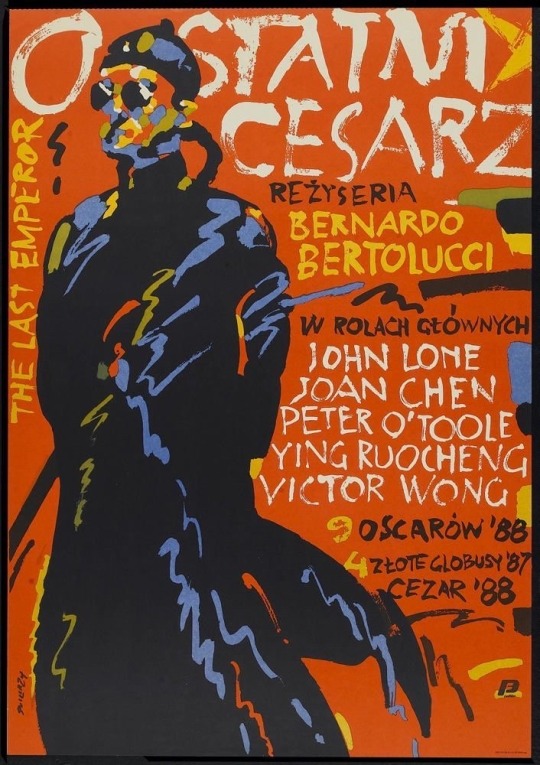
Pinterest just shared with me the Polish poster for “The Last Emperor” (1987) by Waldemar Świerzy. I mean, isn’t it awesome?
#the last emperor#the last emperor (1987)#bernardo bertolucci#john lone#joan chen#peter o’toole#ryuichi sakamoto#biographical film#qing dynasty#history of China#polish art#1980s movies#1980s style#polska szkoła plakatu#polish school of posters#polish language#aisin gioro puyi#waldemar świerzy
18 notes
·
View notes
Photo

“Throne Will Accede to Rebels,” Winnipeg Tribune. December 27, 1911. Page 1.
----
Chinese Imperial Court and Premier Give Up Fight - Regret Powers Refused Loans For War Purposes
----
Peking, Dec. 27. - Representative members of the imperial court, according to an an authoritative source, have signaled to Premier Yuan Shi Kai their willingness to agree to an abdication. The court, the same authority states, realizes that there is no hope for it in the detention of three or four detached sections of the country and semi-royal provinces, and hopes to obtain better terms by agreeing to the proposed referendum on the form of government.
The premier is certain that he could win several battles with a modern army at his disposal, but as he is unable to obtain any loans he would be unable to reconquer the lost provinces.
Premier to Resign
Yuan Shi Kai in all probability will resign his office after making the best terms possible for the throne. He considers Tang Shao Yi, a deserted, and suggests that the latter might become president of the republic, an office he himself would not accept.
Yuan Shi Kai also regrets that foreign nations have withheld their financial support with which he could have reconquered the country.
#beijing#qing empire#qing china#emperor of china#xinhai revolution#辛亥革命#chinese revolution#qing dynasty#xuantong emperor#溥儀#manchu dynasty#anti-qing politics#end of the qing#yuan shikai#history of china#chinese history
2 notes
·
View notes
Text
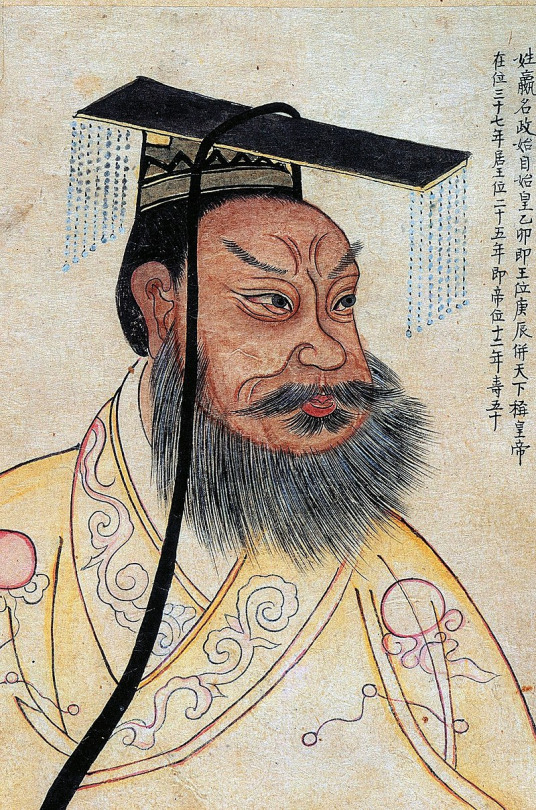
The first Emperor of China was Qin Shi Huang (259 BC – 210 BC). He is accredited as the founder of the Qin dynasty. Under his rule, China expanded vastly in terms of geographical size.
He is widely regarded as a tyrannical leader and directed the execution of tens of thousands of people.
There were three attempts to assassinate him throughout his reign. The first attempt was via a dagger that was smuggled inside an exotic map, which was intended to be a gift. The second was with a block of lead, which was hidden inside a lute, belonging to a musician who had been invited to play in the palace. The assassin/musician swung at the king with it, but missed. The third involved a hired strongman, who was to hurl a heavy metal cone, of 160 lb, at the Huang’s carriage as it passed in the mountains. The cone did hit the carriage; but Huang was inside the carriage behind it, having used two other carriages as dummies.
As Huang got older and his health worsened, he became obsessed with funding the ‘elixir of life’. He studied mystical texts about the legend of the elixir, and then sent teams on expeditions to islands and mountains where it was rumoured could be found. Huang also sought to find a magician who was supposedly 1000 years old, and hired a group of men to locate him. The group never returned, perhaps because they knew what would happen if they returned to Huang having failed.
The emperor owned over 200 palaces. Under these, he had built for him a network of tunnels, which he believed could keep him safe from evil spirits.
Despite his fear of dying, Huang ordered the building of a huge mausoleum for himself. The tomb was built at the bottom of Mount Li, and was surrounded by around 6000 terracotta soldier statues. Huang believed the statues, equipped with real bronze weapons, would protect his body in the afterlife.
Although the amount of real men it took to build this gigantic mausoleum can’t be figured exactly, it was certainly in the tens of thousands. After the tomb was completed, it was sealed off, with many things hidden inside. Huang had ordered for all the men who helped build it then be executed, because he wanted to preserve the secrecy of his building.
^ Yep. We still get tyrants today. We know who they are. Regularly we see their photos in the news, and hear about their madness. But, wow: this ^ man must have had some real problems. You wonder what could happen to a man for him to get so deluded as to his own self worth. These are reasons why I often find history so disturbing. Violent, murderous. Mad kings … that kind of thing. There is certainly truth in that old phrase ‘gone mad with power’. In history books, the term ‘Great’ is often labelled to a particular leader, or man. ‘The Great King of …’ etc, etc. I see nothing of greatness in men such as these.
History can be a fairly grizzly topic indeed.
0 notes
Text



Turqouise inlaid bronze dagger axe (ge), China, Late Shang Dynasty 12th-11th century BC
from Sothebys
4K notes
·
View notes
Text
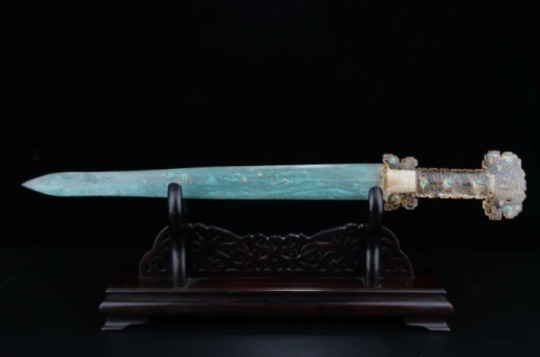
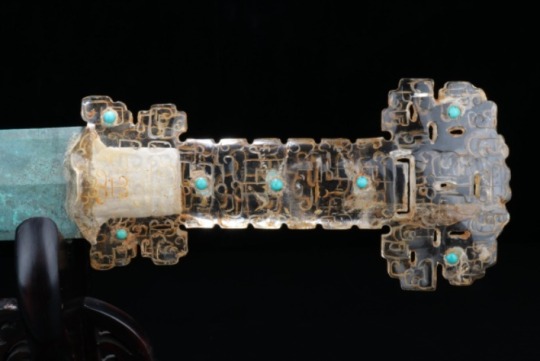
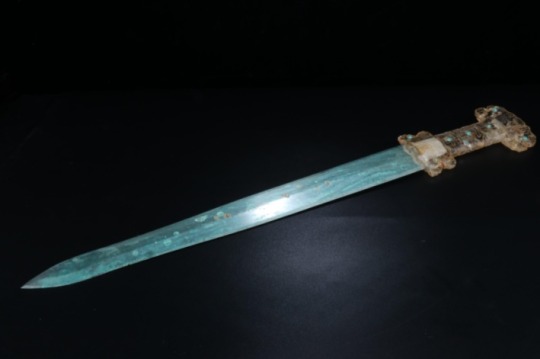
Chinese Bronze Sword With An Inlaid Rock Crystal, Turquoise and Gold Hilt
Warring States Period, Circa 4th - 2nd Century B.C.
#Chinese Bronze Sword With An Inlaid Rock Crystal Turquoise and Gold Hilt#Warring States Period#Circa 4th - 2nd Century B.C.#bronze#bronze sword#ancient artifacts#archeology#archeolgst#history#history news#ancient history#ancient culture#ancient civilizations#ancient china#chinese history#chinese art#art
2K notes
·
View notes
Text


🌞 Sun and Moon Pagodas | 日月双塔 🌚
Originally built in Guilin, Guangxi during the Tang dynasty (618-917) the pagodas were reconstructed in 2001.
#chinese culture#chinese history#Chinese architecture#buddhism#pagodas#tang dynasty#asian architecture#China#east asia#east Asian cultures#dynastic china
1K notes
·
View notes
Text
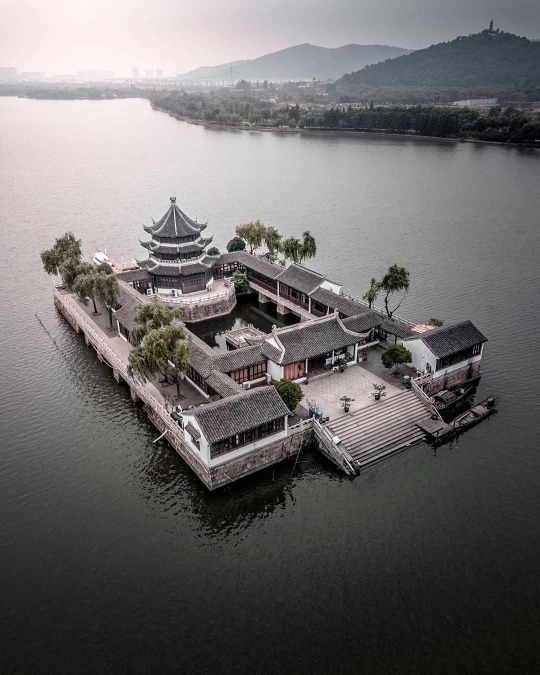
Tianjing Pavilion, Lake Shi. Suzhou, China,
Photo by Jeff Deng
#art#design#architecture#history#luxury lifestyle#style#pavillion#ming dynasty#china#lake shi#suzhou#tianjing pavilion#jeff deng#1612
2K notes
·
View notes
Text


Although located in the heart of Chongging, one of China's mega cities, Luohan Temple was constructed over 1000 years ago. Its ancient corridors lead to worn stone depictions of the Buddha while its wooden halls wafts with incense and are adorned with hundreds of local colourful deities.
1K notes
·
View notes
Text
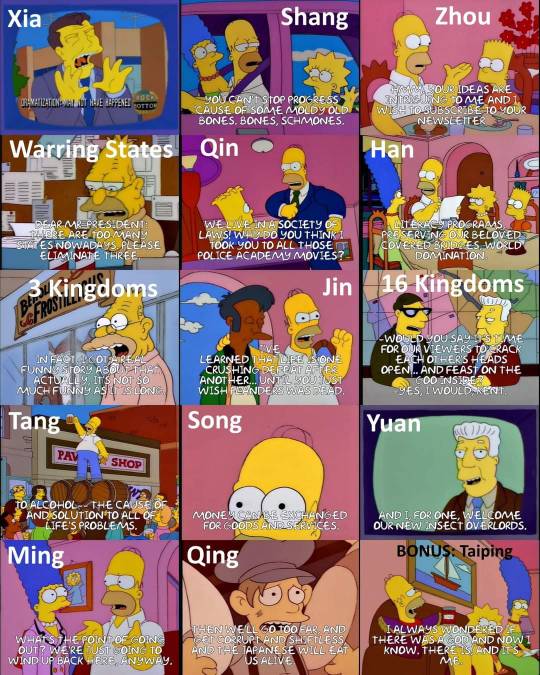
Chinese imperial dynasties as Simpsons quotes
2K notes
·
View notes
Text
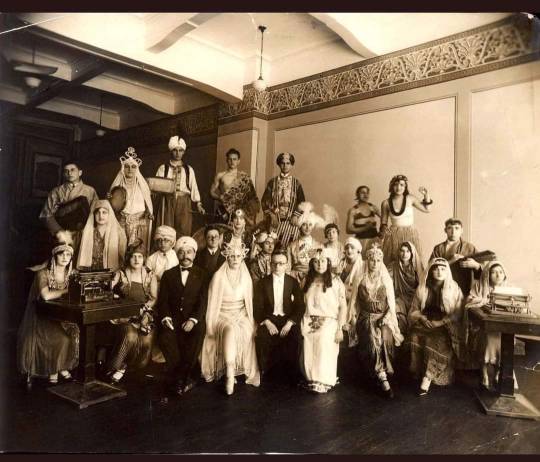
Baghdadi Jews celebrate Purim in Shanghai 1908
Source: Rachel Wahba
#jumblr#jewish#jews#nesyapost#jewish history#jewish culture#purim#Jewish holidays#purim upon us lads#shanghai#China#Jews in China#1908#baghdadi jews
926 notes
·
View notes
Photo
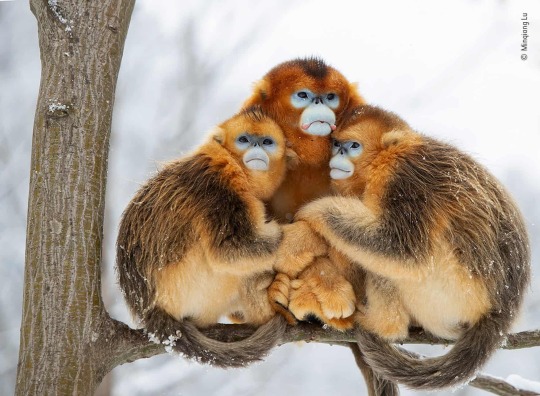
Two females and a male golden snub-nosed monkey huddle together to keep warm in the extreme winter cold. Threatened mainly by forest loss and fragmentation, this endangered species is confined to central China. One of the shortlisted 25 images in the running for the Wildlife Photographer of the Year People’s Choice award at the Natural History Museum
Photograph: Minqiang Lu/2022 Wildlife Photographer of the Year
#minqiang lu#photographer#wildlife photographer of the year#golden snub-nosed monkey#monkey#animal#mammal#wildlife#china#natural history museum#nature
1K notes
·
View notes
Note
Hi my friend wanted to ask about Chinese Opera and the red pom poms on their hats and their significance. I asked my mom and she said they were for decoration so I just wanted clarification
Hi! Thanks for the question, and sorry for taking ages to reply!
The pom poms you see on 盔头/kuitou (Chinese opera headdresses) are called 绒球/rongqiu (lit. "velvet ball"). They are often red, but can also be other colors, and vary in size. Ronqiu are decorative and serve to distinguish the many different types of kuitou from one another. Each type of kuitou is distinct in the number, size, and color of rongqiu that it's decorated with (of course, not all kuitou have rongqiu).
Below - a few different types of Beijing opera kuitou decorated with rongqiu (x):
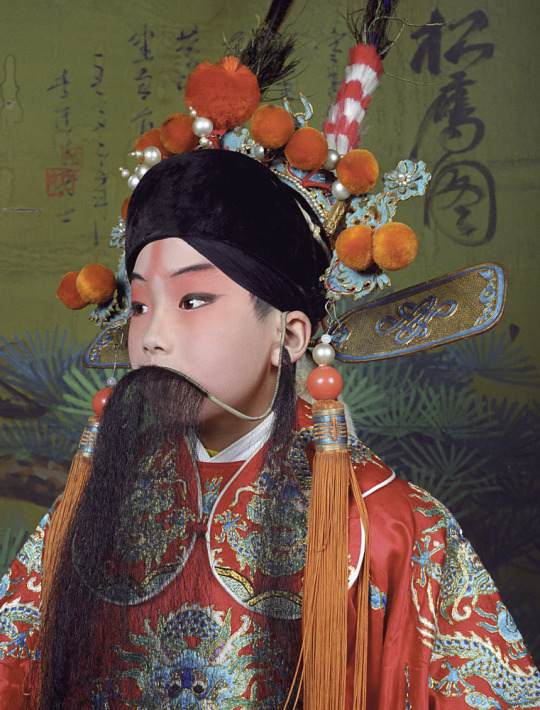
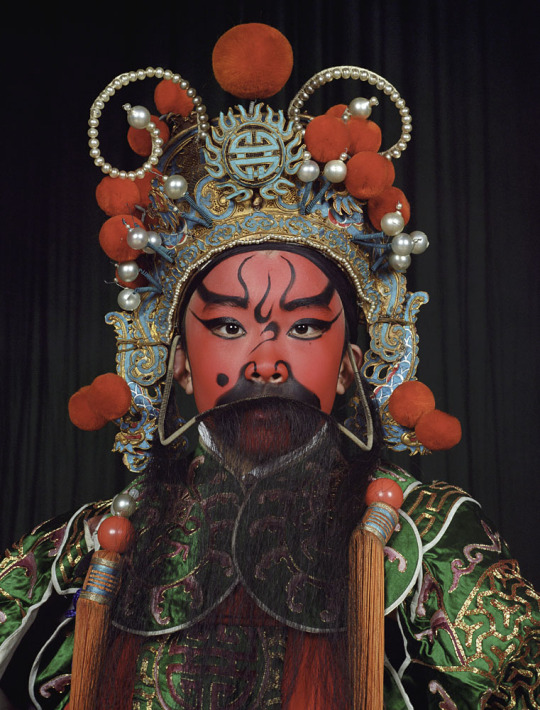
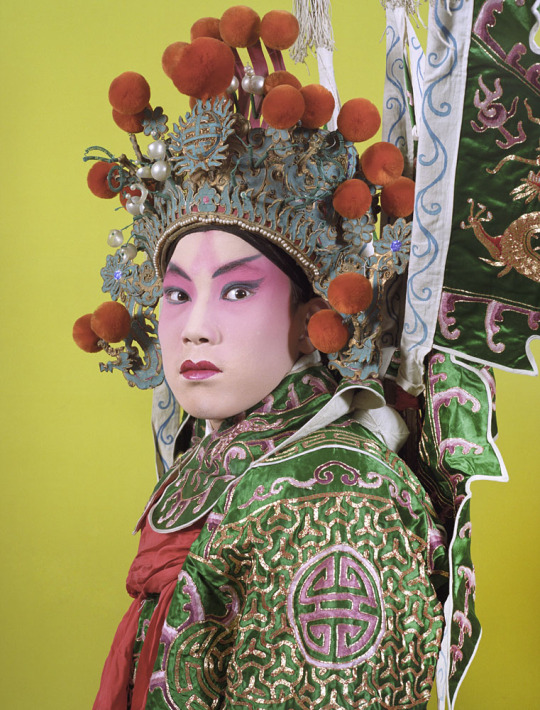
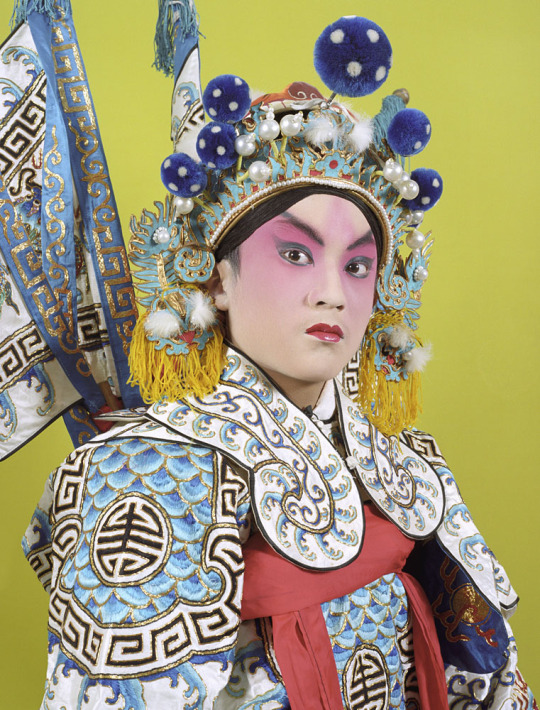
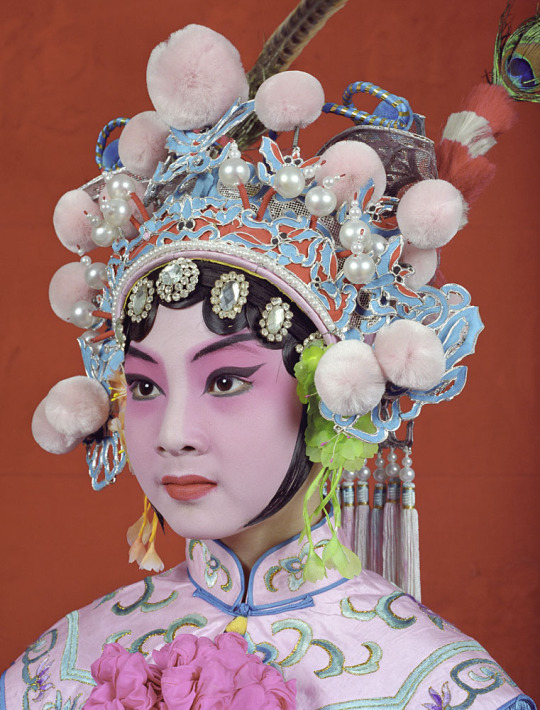
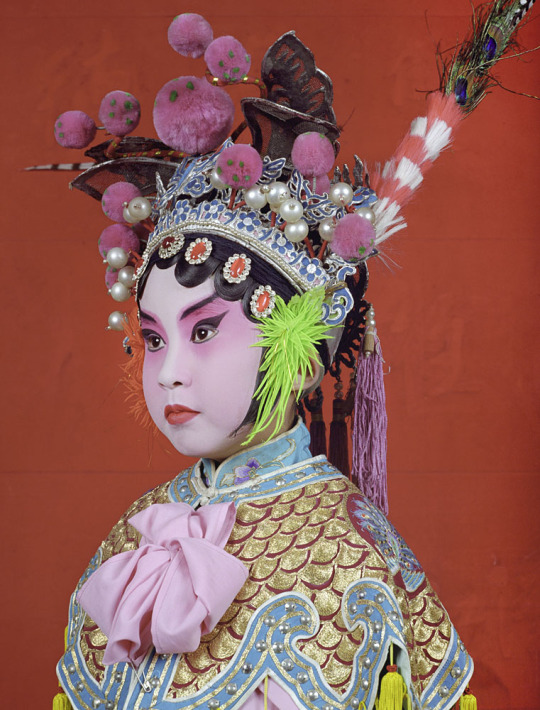
Rongqiu isn't used just for Chinese opera performances - it's a very common decorative item for Chinese headwear, especially for traditional/folk performances.
Below - examples of rongqiu use in folk custom/performance costumes, left to right: 1) 游神/youshen (wandering gods) procession in Fujian (x), 2) 英歌舞/yingge wu (yingge dance) performer in Guangdong (x), 3) & 4) 高跷/gaoqiao (stilt walking) performers in a 社火/shehuo parade in Gansu (x):

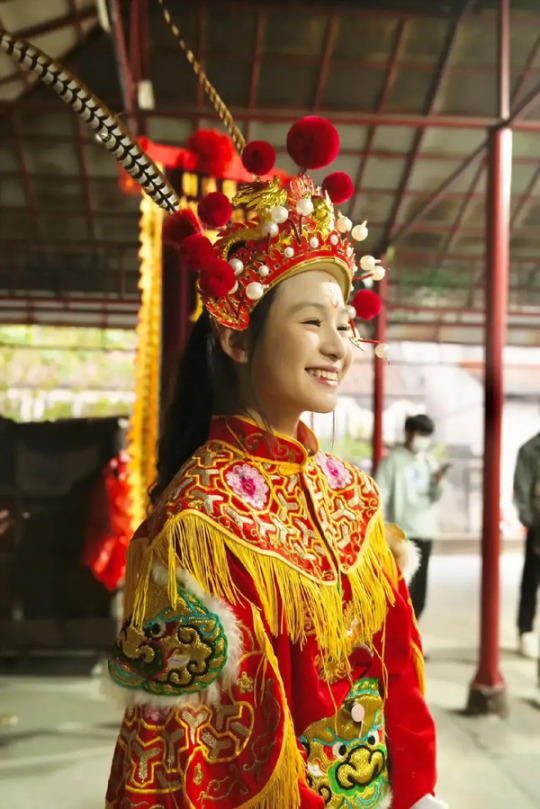

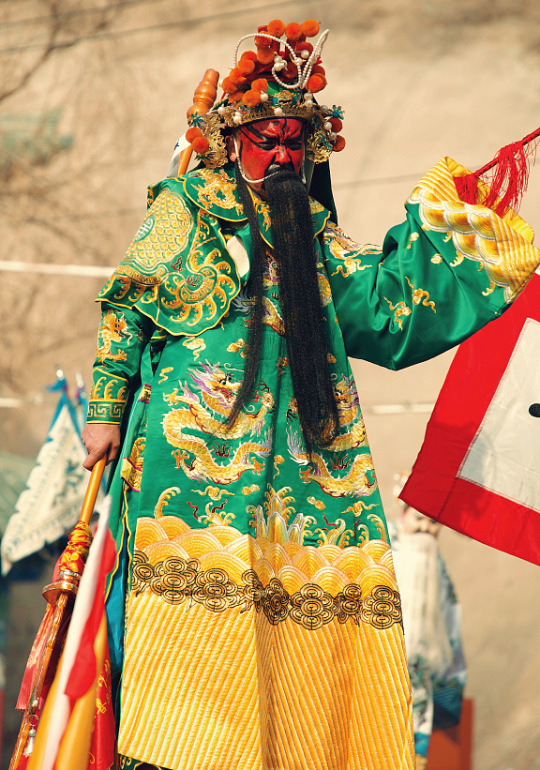
As a festive decoration, rongqiu was also widely used on bridal guan (crowns) from the Qing dynasty into the modern day.
Below - examples of rongqiu use in historical bridal guan: Left - a bride during the late Qing dynasty, circa 1890 (x); Right - a bride during the Republican era/minguo, in 1939 (x):
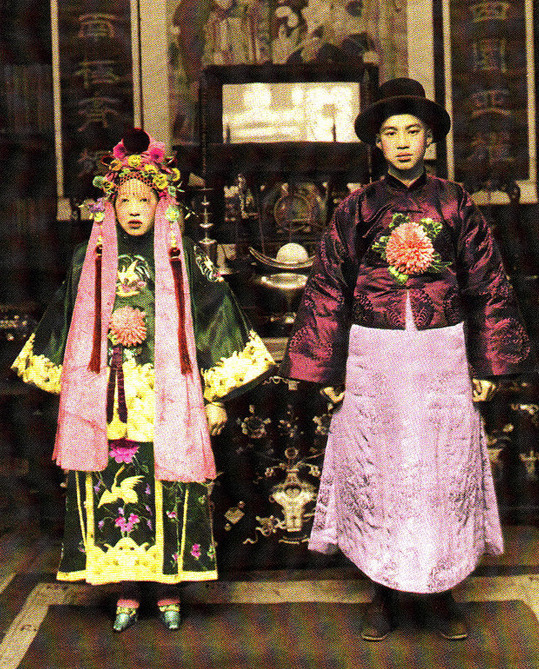
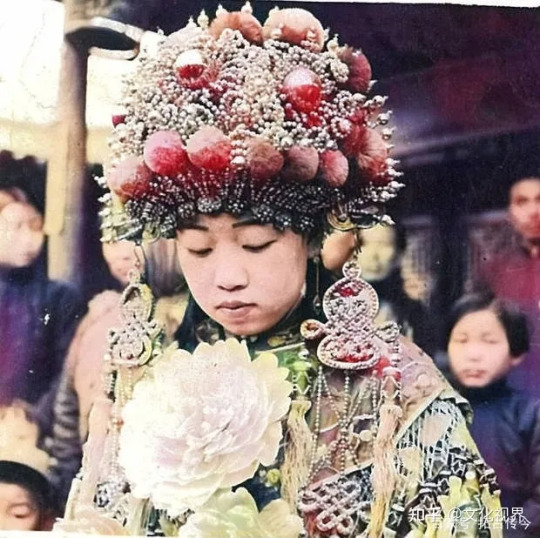
For some reason it's been extremely difficult to find sources on the origin of rongqiu that would shed more light on its significance, but based on historical paintings the use of rongqiu as a head ornament may have originated in the Qing dynasty. During the late Qing dynasty, it was fashionable among women to wear rongqiu on the sides of their hair, as can be seen in the paintings below (x):

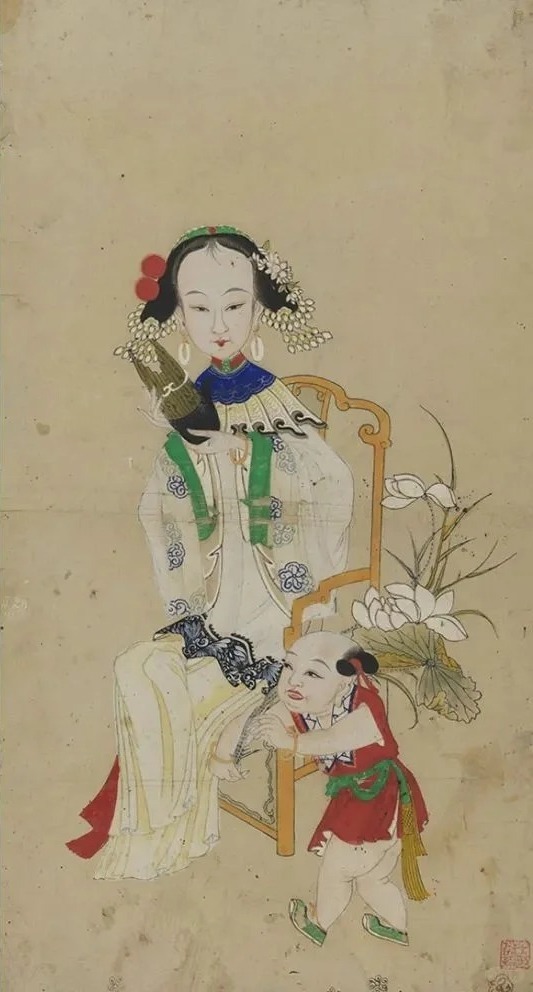
This particular style of rongqiu hair ornament was depicted in the 2012 historical cdrama 娘心计/Mother's Scheme:
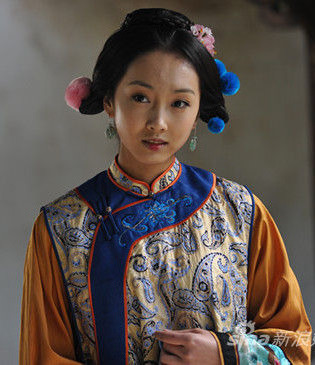
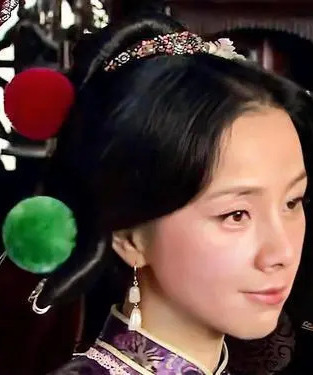
For more references, please see my rongqiu and kuitou tags.
If anyone has more information on the significance of rongqiu, please do share!
Hope this helps ^^
#rongqiu#pompoms#kuitou#chinese opera#opera costume#xifu#hanfu#history#reference#ask#reply#junpeicindystories#chinese fashion#chinese clothing#china
506 notes
·
View notes
Text
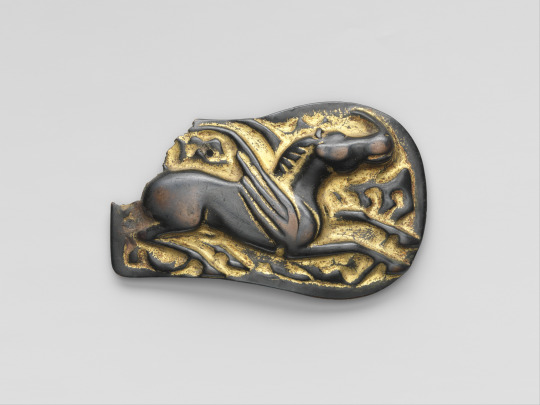

東漢(鮮卑文化) 鎏金翼馬紋銅飾板
~ Plaque with a Winged Horse.
Period: Eastern Han dynasty (25–220), Xianbei culture
Date: 1st century
Culture: North China
Medium: Gilt bronze
#ancient#ancient art#history#museum#archeology#ancient history#archaeology#china#chinese#ancient china#winged horse#horse#plaque with a winged horse#plaque#eastern han dynasty#xianbei#1st century
905 notes
·
View notes
Text
My alternate universe fantasy colonial Hong Kong is more authoritarian and just as racist but less homophobic than in real life, should I change that?
@floatyhands asked:
I’m a Hongkonger working on a magical alternate universe dystopia set in what is basically British colonial Hong Kong in the late 1920s. My main character is a young upper middle-class Eurasian bisexual man.
I plan to keep the colony’s historical racial hierarchy in this universe, but I also want the fantasy quirks to mean that unlike in real life history, homosexuality was either recently decriminalized, or that the laws are barely enforced, because my boy deserves a break. Still, the institutions are quite homophobic, and this relative tolerance might not last. Meanwhile, due to other divergences (e.g. eldritch horrors, also the government’s even worse mishandling of the 1922 Seamen's Strike and the 1925 Canton-Hong Kong Strike), the colonial administration is a lot more authoritarian than it was in real history. This growing authoritarianism is not exclusive to the colony, and is part of a larger global trend in this universe.
I realize these worldbuilding decisions above may whitewash colonialism, or come off as choosing to ignore one colonial oppression in favor of exaggerating another. Is there any advice as to how I can address this issue? (Maybe I could have my character get away by bribing the cops, though institutional corruption is more associated with the 1960s?) Thank you!
Historical Precedent for Imperialistic Gay Rights
There is a recently-published book about this topic that might actually interest you: Racism And The Making of Gay Rights by Laurie Marhoefer (note: I have yet to read it, it’s on my list). It essentially describes how the modern gay rights movement was built from colonialism and imperialism.
The book covers Magnus Hirschfeld, a German sexologist in the early 1900s, and (one of) his lover(s), Li Shiu Tong, who he met in British Shanghai. Magnus is generally considered to have laid the groundwork for a lot of gay rights, and his research via the Institut für Sexualwissenschaft was a target of Nazi book-burnings, but he was working with imperial governments in an era where the British Empire was still everywhere.
Considering they both ended up speaking to multiple world leaders about natural human sexual variation both in terms of intersex issues and sexual attraction, your time period really isn’t that far off for people beginning to be slightly more open-minded—while also being deeply imperialist in other ways.
The thing about this particular time period is homosexuality as we know it was recently coming into play, starting with the trial of Oscar Wilde and the rise of Nazism. But between those two is a pretty wildly fluctuating gap of attitudes.
Oscar Wilde’s trial is generally considered the period where gay people, specifically men who loved men, started becoming a group to be disliked for disrupting social order. It was very public, very scandalous, and his fall from grace is one of the things that drove so many gay and/or queer men underground. It also helped produce some of the extremely queercoded classical literature of the Victorian and Edwardian eras (ex: Dracula), because so many writers were exploring what it meant to be seen as such negative forces. A lot of people hated Oscar Wilde for bringing the concept to such a public discussion point, when being discreet had been so important.
But come the 1920s, people were beginning to wonder if being gay was that bad, and Mangus Hirschfeld managed to do a world tour of speaking come the 1930s, before all of that was derailed by wwii. He (and/or Li Shiu Tong) were writing papers that were getting published and sent to various health departments about how being gay wasn’t an illness, and more just an “alternative” way of loving others.
This was also the era of Boston Marriages where wealthy single women lived together as partners (I’m sure there’s an mlm-equivalent but I cannot remember or find it). People were a lot less likely to care if you kept things discreet, so there might be less day to day homophobia than one would expect. Romantic friendships were everywhere, and were considered the ideal—the amount of affection you could express to your same-sex best friend was far above what is socially tolerable now.
Kaz Rowe has a lot of videos with cited bibliographies about various queer disasters [affectionate] of the late 1800s/early 1900s, not to mention a lot of other cultural oddities of the Victorian era (and how many of those attitudes have carried into modern day) so you can start to get the proper terms to look it up for yourself.
I know there’s a certain… mistrust of specifically queer media analysts on YouTube in the current. Well. Plagiarism/fact-creation scandal (if you don’t know about the fact-creation, check out Todd in the Shadows). I recommend Kaz because they have citations on screen and in the description that aren’t whole-cloth ripped off from wikipedia’s citation list (they’ve also been published via Getty Publications, a museum press).
For audio-preferring people (hi), a video is more accessible than text, and sometimes the exposure to stuff that’s able to pull exact terms can finally get you the resources you need. If text is more accessible, just jump to the description box/transcript and have fun. Consider them and their work a starting place, not a professor.
There is always a vulnerability in learning things, because we can never outrun our own confirmation bias and we always have limited time to chase down facts and sources—we can only do our best and be open to finding facts that disprove what we researched prior.
Colonialism’s Popularity Problem
Something about colonialism that I’ve rarely discussed is how some colonial empires actually “allow” certain types of “deviance” if that deviance will temporarily serve its ends. Namely, when colonialism needs to expand its territory, either from landing in a new area or having recently messed up and needing to re-charm the population.
By that I mean: if a fascist group is struggling to maintain popularity, it will often conditionally open its doors to all walks of life in order to capture a greater market. It will also pay its spokespeople for the privilege of serving their ends, often very well. Authoritarians know the power of having the token supporter from a marginalized group on payroll: it both opens you up directly to that person’s identity, and sways the moderates towards going “well they allow [person/group] so they can’t be that bad, and I prefer them.”
Like it or not, any marginalized group can have its fascist members, sometimes even masquerading as the progressives. Being marginalized does not automatically equate to not wanting fascism, because people tend to want fascist leaders they agree with instead of democracy and coalition building. People can also think that certain people are exaggerating the horrors of colonialism, because it doesn’t happen to good people, and look, they accept their friends who are good people, so they’re fine.
A dominant fascist group can absolutely use this to their advantage in order to gain more foot soldiers, which then increases their raw numbers, which puts them in enough power they can stop caring about opening their ranks, and only then do they turn on their “deviant” members. By the time they turn, it’s usually too late, and there’s often a lot of feelings of betrayal because the spokesperson (and those who liked them) thought they were accepted, instead of just used.
You said it yourself that this colonial government is even stricter than the historical equivalent—which could mean it needs some sort of leverage to maintain its popularity. “Allowing” gay people to be some variation of themselves would be an ideal solution to this, but it would come with a bunch of conditions. What those conditions are I couldn’t tell you—that’s for your own imagination, based off what this group’s ideal is, but some suggestions are “follow the traditional dating/friendship norms”, “have their own gender identity slightly to the left of the cis ideal”, and/or “pretend to never actually be dating but everyone knows and pretends to not care so long as they don’t out themselves”—that would signal to the reader that this is deeply conditional and about to all come apart.
It would, however, mean your poor boy is less likely to get a break, because he would be policed to be the “acceptable kind of gay” that the colonial government is currently tolerating (not unlike the way the States claims to support white cis same-sex couples in the suburbs but not bipoc queer-trans people in polycules). It also provides a more salient angle for this colonial government to come crashing down, if that’s the way this narrative goes.
Colonial governments are often looking for scapegoats; if gay people aren’t the current one, then they’d be offered a lot more freedom just to improve the public image of those in power. You have the opportunity to have the strikers be the current scapegoats, which would take the heat off many other groups—including those hit by homophobia.
In Conclusion
Personally, I’d take a more “gays for Trump” attitude about the colonialism and their apparent “lack” of homophobia—they’re just trying to regain popularity after mishandling a major scandal, and the gay people will be on the outs soon enough.
You could also take the more nuanced approach and see how imperialism shaped modern gay rights and just fast-track that in your time period, to give it the right flavour of imperialism. A lot of BIPOC lgbtqa+ people will tell you the modern gay rights movement is assimilationalist, colonialist, and other flavours of ick, so that angle is viable.
You can also make something that looks more accepting to the modern eye by leaning heavily on romantic friendships that encouraged people waxing poetic for their “best friends”, keeping the “lovers” part deeply on the down low, but is still restrictive and people just don’t talk about it in public unless it’s in euphemisms or among other same-sex-attracted people because there’s nothing wrong with loving your best friend, you just can’t go off and claim you’re a couple like a heterosexual couple is.
Either way, you’re not sanitizing colonialism inherently by having there be less modern-recognized homophobia in this deeply authoritarian setting. You just need to add some guard rails on it so that, sure, your character might be fine if he behaves, but there are still “deviants” that the government will not accept.
Because that’s, in the end, one of the core tenants that makes a government colonial: its acceptance of groups is frequently based on how closely you follow the rules and police others for not following them, and anyone who isn’t their ideal person will be on the outs eventually. But that doesn’t mean they can’t have a facade of pretending those rules are totally going to include people who are to the left of those ideals, if those people fit in every other ideal, or you’re safe only if you keep it quiet.
~ Leigh
#colonialism#colonization#worldbuilding#alternate history#history#lgbt#china#hong kong#british empire#ask
529 notes
·
View notes
Text
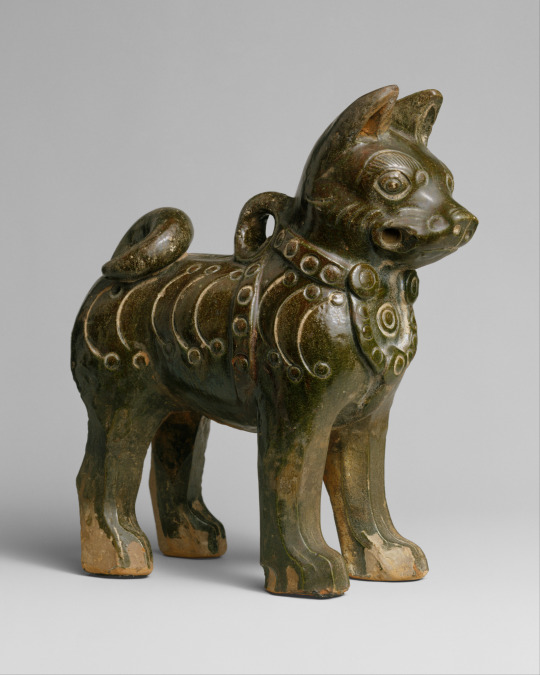
Earthenware figurine of a dog, China, Eastern Han Dynasty 25-220 AD
from The Metropolitan Museum of Art
2K notes
·
View notes
